Award of Excellence in Ecosystem Science
Previous Recipients
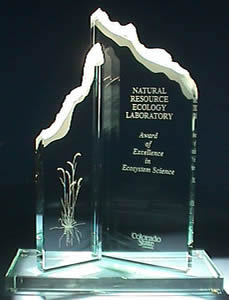
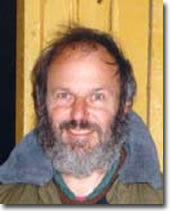 2011 Dr. F. Stuart Chapin
2011 Dr. F. Stuart Chapin
F. Stuart Chapin, III (Terry) is an ecosystem ecologist whose research addresses the sustainability of ecosystems and human communities in a rapidly changing planet. This work emphasizes the impacts of climate change on Alaskan ecology, subsistence resources, and indigenous communities, as a basis for developing climate-change adaptation plans. His current research interests focus on the resilience of social-ecological systems. As director of the graduate educational program in Resilience and Adaptation at the University of Alaska, Fairbanks, Chapin studies human-fire interactions in the boreal forest. A professor of ecology in the Institute of Arctic Biology at the University of Alaska Fairbanks (Fairbanks, AK), Chapin was the first Alaskan elected to the National Academy of Sciences. His initial research concentrated on the adaptation of plants to changing environmental conditions and has evolved to investigating the dynamics of socio-ecological systems under changing conditions. Among the honors Chapin has received are the Kempe Award for Distinguished Ecologist in 1996, the Usabelli Award for the top researcher in all fields from the University of Alaska in 2000, and the ESA Sustainability Science Award in 2008. As President of ESA, he plans to address the "critical issue" of planetary stewardship. With Mary Power and Steward Pickett, Chapin is leading a Planetary Stewardship initiative “whose goal is to reorient society toward a more sustainable relationship with the biosphere.”
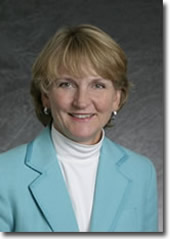
2007 Dr. Pamela A. Matson
Pamela Matson is the Richard and Rhoda Goldman Professor of Environmental Studies in the Department of Geological and Environmental Sciences, the Naramore Dean of the School of Earth Sciences, and McMurtry Fellow for Undergraduate Education. She is also a senior fellow at the Freeman Spogli Institute for International Studies and the Woods Institute for the Environment, both at Stanford University. Her research interests include ecological and biogeochemical responses to agricultural intensification, climate change, and nitrogen deposition, and the interactions among decision-making and environmental issues in developing regions. She was an early contributor to the international global change research program, serving in leadership positions in the International Geosphere-Biosphere Program and Projects, and on the National Academy Board on Global Change. She has more recently been a leader in efforts to harness science and technology for sustainable development, serving as a member of the National Academies Board on Sustainable Development and as the founding chair of the National Academies Roundtable on Science and Technology for Sustainability. Her contributions have been recognized through election to the American Academy of Arts and Sciences and the National Academy of Sciences, as a Fellow of the American Association for the Advancement of Science, and as a recipient of a MacArthur Prize. She served as president of the Ecological Society of America and currently serves as the founding editor of the Annual Review of Environment and Resources. She is a trustee of the World Wildlife Fund (US) and the National Park Conservation Association.
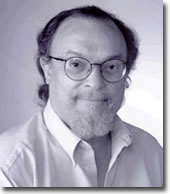 2004 Dr. Samuel J. McNaughton
2004 Dr. Samuel J. McNaughton
Professor McNaughton is internationally recognized for his contributions to the field of grazing ecosystem ecology. He is the William Rand Keenan Jr. Professor of Biology at Syracuse University, where he has been since 1966. His professional interests and work include ecosystem and plant ecology, grassland ecosystems, ecology of large mammalian herbivores, and conservation biology. He has conducted definitive research in the world’s premier grazing ecosystem, the Serengeti, for three decades. He is the author of a widely used textbook in ecology, and over 130 papers.
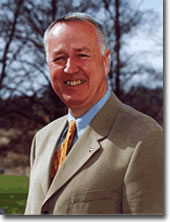
2002 Dr. Thomas Rosswall
Rosswall has been instrumental in the development of microbial ecology, both nationally and internationally. His leadership in three major ecosystem projects has been important not only for ecosystem sciences in Sweden, but also for the development of international networks, which have fostered intensive collaboration between scientists in many countries. His efforts to link scientists in the North to those in the South as well as South-South networks should also be noted.
His work on carbon and nitrogen cycling has ranged from microcosm studies to the globe and has been able to link deep process understanding to modelling efforts of entire systems at all scales. He has played a pivotal role in the SCOPE and IGBP efforts to understand the functioning of the global ecosystem. Work on linking biological, chemical and physical processes has later also included considerations of the human aspects and Mankind as a crucial forcing function.
He is currently the Executive Director of the International Council for Science, Paris, France. Formerly he has been Director of the International Foundation for Science (IFS), President of the Swedish University of Agricultural Sciences, Director of the International START Secretariat, Executive Director of the International Geosphere-Biosphere Programme (IGBP) and Professor of Water in Nature and Society at the Universities of Stockholm and Linköping, Sweden. He has also served on numerous international and national committees and boards. He is an elected member of four learned societies.
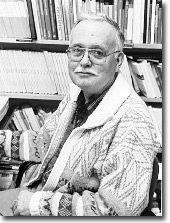
1999 Dr. David Coleman
The 1999 recipient of the Excellence in Ecosystem Science award is David Coleman, Institute of Ecology at the University of Georgia in Athens.
Dr. David Coleman, professor and research scientist at Colorado State University from 1972-85, has become the second recipient of NREL's Award for Excellence in Ecosystem Science. Coleman, recognized for his pioneering studies in plant roots, microbes, soil fauna and soil physical properties, was presented with this distinguished honor in conjunction with NREL's External Advisory Committee meeting.
During his tenure here, Coleman was a senior research scientist at NREL and professor of entomology and zoology. Dr. Coleman has written more than 230 journal publications. His contributions to soil ecology have been recognized by a Professional Achievement Award from the Soil Ecology Society and his election as Fellow of the Soil Science Society of America. Dave is now at the Institute of Ecology at the University of Georgia in Athens.
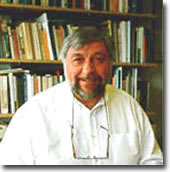
1997 Dr. Jerry M. Melillo
The 1997 recipient of the Excellence in Ecosystem Science award is Jerry M. Melillo, Co-Director of the Ecosystems Center at the Marine Biological laboratory in Woods Hole, Massachusetts.
Dr. Melillo’s research on biogeochemistry includes work on global change, the ecological consequences of tropical deforestation, and sustainable management of forest ecosystems. He was a covening lead author on the 1990 and 1995 IPCC assessments of climate change. He has served as a vice-chair of the International Geosphere-Biosphere Programme (IGBP) and is currently President of ICSU’s Scientific Committee on Problems of the Environment (SCOPE). He is also a member of the SSC of START (System for Analysis, Research and Training), a joint activity of IGBP, IHDP and WCRP.
Dr. Melillo founded the Marine Biological Laboratory’s Semester in Environmental Science, an education program for undergraduates from small liberal arts colleges and universities in which students spend a term learning and doing environmental science in Woods Hole. Dr. Melillo also has a strong interest in science policy. He served as the Associate Director for Environment at the Office of Science and Technology Policy in the Executive Office of the President for 15 months in 1996 and 1997.
Dr. Melillo has authored more than 200 peer-reviewed journal articles and two textbooks.